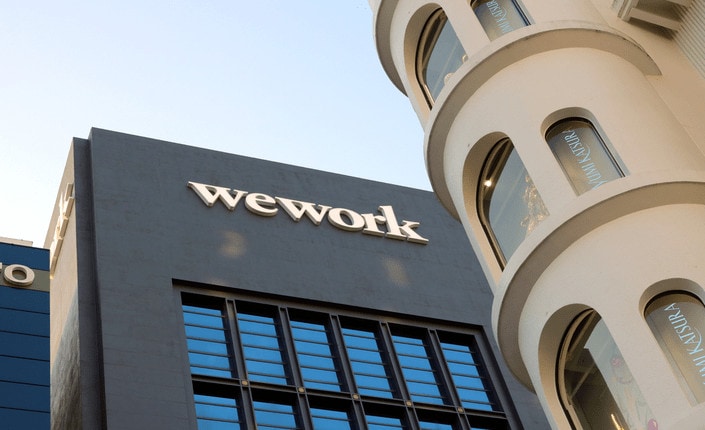
WeWork has seen its fair share of obstacles in the last year. With a failed IPO, an ousted CEO and co-founder, and office closings due to shelter-in-place measures to keep people safe from the contagious COVID-19 virus, WeWork hasn’t see a light at the end of the tunnel in a while. That isn’t changing now.
WeWork’s board is preparing to vote to add two temporary independent directors. The board of members has a majority of SoftBank members, which would be fine if the flexible workspace provider wasn’t in the middle of a feud with its Japanese investor.
SoftBank has backed out of a $3 million stock buyout agreement back in April, in which two members of WeWork’s board have sued SoftBank over.
WeWork board members Bruce Dunlevie and Lew Frankfort asked a judge to prevent WeWork's board from bringing on two temporary board directors. They will also decide whether or not the lawsuit against SoftBank can continue.
Dunlevie and Frankfort looked into a number of ways to save the failing workspace aggregator back in October 2019. One of which included SoftBank's bailout.
Frankfort stated in a court filing:
"The uncertainty created by this process will cause harm to the Company and its minority stockholders.”
In response to the court’s decision against preventing new board members to join WeWork’s board, a spokesperson at SoftBank said:
"WeWork is pursuing best practices of corporate governance to determine what role if any WeWork should have in this contractual dispute among its shareholders. The court's decision today allows that process to go forward.”
The dispute began in April when SoftBank backed out its bailout agreement with WeWork. The flexible workspace aggregator has then begun pulling away from its majority investor while the company continues to struggle with the number of obstacles it’s facing.
WeWork has also been in conflict with SoftBank over forming a committee to find new board members.
SoftBank’s attorney’s said in a recent filing on the matter:
"The Special Committee seeks to entrench itself, securing a blank check drawn from WeWork's treasury to fund litigation benefiting its members and other tendering stockholders.”
The attorneys have also claimed that Frankfort and Dunlevie have connections with WeWork through investments, Dunlevie via his venture capital firm Benchmark Capital and Frankfort via two investment entities.
The two board members are representing 850 current and former WeWork employees who were set to participate in the tender offer. Adam Neumann, WeWork’s Co-Founder and former CEO, is also suing SoftBank for the same reason.
The groups are due back in court in July.